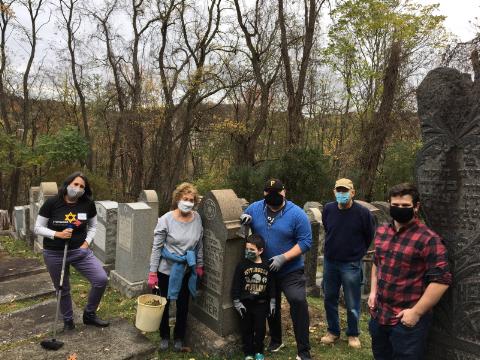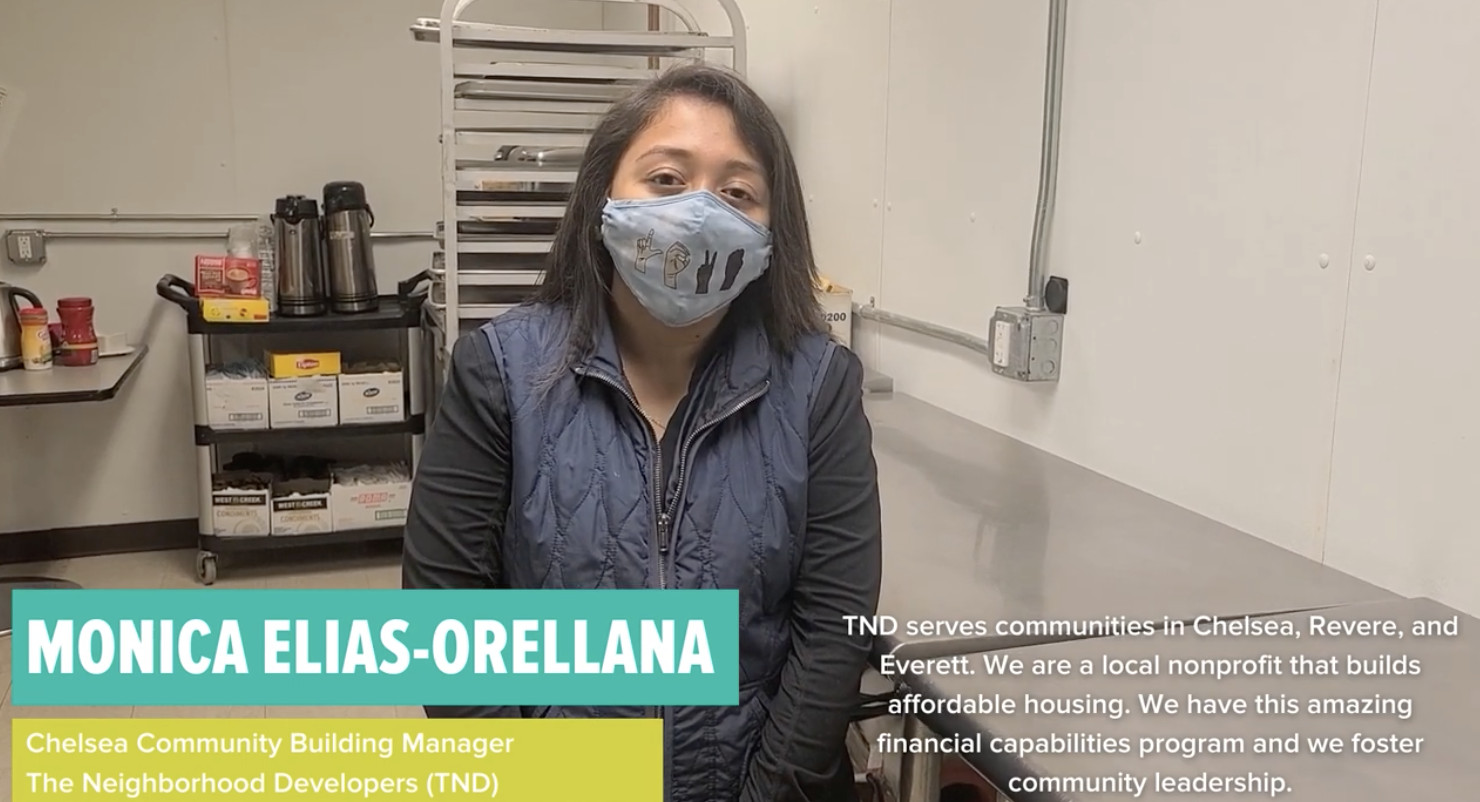Repair Interview: Sonni Bendetson on Moishe House and Repair the World’s Partnership
Since 2011, Repair the World and Moishe House have worked together to create a culture of service and combine Moishe House’s communal living model with social action. At the helm of this exciting partnership is Sonni Bendetson, the Director of Repair the World Programming and Alumni Engagement for Moishe House.
As an awesome Repair the World partner, Sonni spends much of her days supporting all 50 Moishe House locations in dreaming up, creating and delivering inspiring, impactful service programs for house members and their wider communities. Recently, Sonni took a few moments to share with us where her own passion for service comes from, how she helps Moishe Houses do their work, and why she thinks Jewish tradition and a commitment to the world go hand-in-hand.
Tell me more about your background with service.
Service was a big part of my college experience, and it played a role in dictating what kind of career choices I made after. I was involved with a lot of education-focused activities including an after-school tutoring program I started for a child with special needs who was not getting the support he needed in school. I was also involved with a writing fellowship at Tufts, helping students with their writing.
Through that fellowship, I got involved with the Clemente Course in the Humanities at Bard College, which is a program that enables low-income adults to take classes in literature, art history, philosophy and other humanities courses taught by amazing professors. I worked with students on their writing and did tutoring and small group work. I noticed that lots of the students wanted to write about their own stories – and many of them had these amazing life stories to share. So I started a special course for women that taught essential writing skills through creative memoir writing. I created a curriculum based around short stories by different women authors who had similar backgrounds to the students. At the end of the course, we put together an anthology of their writing – it was a powerful and wonderful collection.
Where does your interest in education and working with people with disabilities stem from?
They have both always been passions of mine. Education was strongly valued in my family. I think a lot of that comes from Jewish culture’s focus on the importance of education. And I have a brother with a disability – he is hard of hearing – so that likely brought those issues to my attention as a kid.
How did you start working for Moishe House and Repair the World, and what drew you to their missions?
After graduating in 2009, I worked for a Jewish organization in Boston called Gateways that focuses on increasing access to Jewish education for children with special needs. I worked there on both the programming and communication sides. When I moved to San Francisco this past summer, I wanted to keep working in the Jewish community, and the position with Repair the World and Moishe House seemed like a great fit. I had had such wonderful experiences with service personally, and I loved the idea of opening other people’s eyes to service and how rewarding it can be.
What is your specific role?
I have a two-pronged job. I’m the director of alumni engagement for Moishe House – it’s a brand new program, and I’m excited to be able to help build it as we grow. I’m also Moishe House’s director of Repair the World programming, which means I support all of our houses in creating service programming. We are working to develop a strong culture of service across Moishe House. So I help all 50 Moishe House locations identify issues they are collectively passionate about, offer guidance to help them create effective service programs, and connect them to one another so they can inspire and help each other.
Additionally, two Moishe House locations – in Chicago and Detroit – are specific Repair the World Moishe Houses. They are just like regular houses except instead of doing one Repair the World service program every three months, they put on 5-6 service programs each month. Those two locations serve as centers of service for young adults, and the residents all have incredible service backgrounds.
What are some examples of service programs Moishe Houses have done?
Our house in Portland recently hosted a three-part program for Sukkot. It started with a build the sukkah event where a bunch of people came over to the house to build, then held a discussion about hunger, homelessness, and food justice. The second event invited people to sleep outside as a way of furthering the conversation about homelessness. Then they partnered with a local organization to put together care packages for people experiencing homelessness in their community. The three-part approach was designed to build on itself, draw connections between Sukkot and these themes, and make the end service action more meaningful.
At the Chicago House, which just opened in September, they have already piloted two ongoing direct service programs. They partner with Lydia Home, an organization for children in the foster care system. They also partner with a homeless shelter where they prepare a meal for 40 people and then sit and eat the meal with them. That way it is not just about dropping off food or serving it, it builds real relationships. We definitely encourage houses to do ongoing service programs, so they can make a sustained impact in their community.
How do you personally connect Jewish tradition and values with service?
For me service and giving back to your community are among the most central themes of Judaism. Everything in Judaism, from the teachings and the customs, to the different traditions, have such an underlying theme of respecting and caring for other people. Being informed, aware, and responsive to the world around me is a big part of my Jewish identity.

